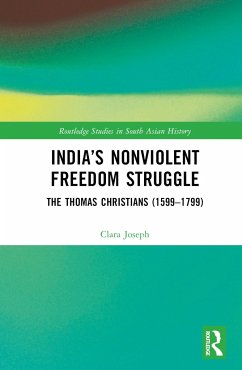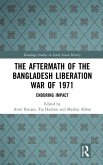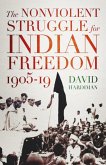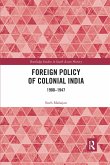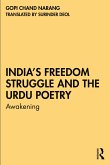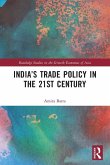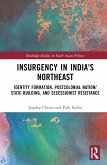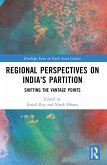India's Nonviolent Freedom Struggle is a groundbreaking book that offers a fresh perspective on the Indian freedom struggle. It focuses on the Thomas Christians, a group of Christians in South India who waged a nonviolent struggle against European colonization during the politically volatile period of 1599-1799.
The book has three related objectives and unique characteristics. First, it offers a comprehensive study of primary sources that scholars have referenced but rarely studied in depth. Second, it argues that the Thomas Christian narratives provide a unique position to challenge prevalent estimations found in canonical and postcolonial critical discourse on the nation. Third, the book considers how an account of a nonviolent struggle by Thomas Christians further complicates received ideas of the postcolonial nation.
The book sheds light on the often-overlooked contributions of the Thomas Christians in India's nonviolent freedom struggle and challenges readers to reimagine the complex and often contentious relationship between colonizers and colonized.
A unique contribution to the study of Indian history, this book is an essential read for scholars of colonialism, anticolonial movements, and the history of India.
The book has three related objectives and unique characteristics. First, it offers a comprehensive study of primary sources that scholars have referenced but rarely studied in depth. Second, it argues that the Thomas Christian narratives provide a unique position to challenge prevalent estimations found in canonical and postcolonial critical discourse on the nation. Third, the book considers how an account of a nonviolent struggle by Thomas Christians further complicates received ideas of the postcolonial nation.
The book sheds light on the often-overlooked contributions of the Thomas Christians in India's nonviolent freedom struggle and challenges readers to reimagine the complex and often contentious relationship between colonizers and colonized.
A unique contribution to the study of Indian history, this book is an essential read for scholars of colonialism, anticolonial movements, and the history of India.
"In her exhaustive and comprehensive study of the nonviolent struggle of Thomas Christians in India, Clara Joseph challenges the commonly held belief that India's freedom movement excluded Christian communities. Engaging and accessible, this book explores the opposition of the Thomas Christians to the racist colonial discourse and defies the general public's misperception of the dissenting experience of Christians of India in the period of Portuguese and Dutch colonialism in this country. Calling for a serious rethink on the very nature of Christian anti-colonial discourse and struggle, Clara Joseph throws a new light on the legacy of India's nonviolent freedom struggle and its far-reaching implications for the minority narratives in India today."
-Ramin Jahanbegloo, Mahatma Gandhi Centre for Nonviolence and Peace Studies, O.P. Jindal Global University, India
"This timely, theoretically sophisticated, and empirically informed study of the Thomas Christian community exposes important but long obscured 17th and 18th century precursors to 20th century non-violent anti-colonialism movements. Dr. Joseph deftly refutes the longstanding and pernicious practice of treating Christianity and Colonialism as synonymous, and thereby opens up fresh possibilities to reconsider relationships between religion and nationalism in India."
-Douglas M. Peers, University of Waterloo, Canada
"Joseph has done a great service by filling an important lacuna in the history of both Christianity in India and colonialism in India. This book succeeds at its goal of contributing to the fields "of World Christianity and Postcolonial Studies."[... Joseph] cogently challenges the common conflation of Christianization with colonization, insists that decolonization and de-Christianization are not synonymous, and shows that the history of the Thomas Christians' Non-Violent Freedom Struggle clearly demonstrates "that anti-colonialism can be Christian and based on traditional theology." This is especially important given that contemporary Hindutva polemic-similar to much secular ideology in the West-condemns Christianity as inherently colonial and un-Indian. The history of the Thomas Christians refutes this facile slander. Joseph's handling of extant primary sources is magisterial. [...] this is an important book, though one aimed more at graduate students and professors than readers with merely a casual interest in colonialism or Christian history. I highly recommend it."
--Joshua Robert Barron, Association for Christian Theological Education in Africa in Religious Studies Review (50,3, Sept 2024).
-Ramin Jahanbegloo, Mahatma Gandhi Centre for Nonviolence and Peace Studies, O.P. Jindal Global University, India
"This timely, theoretically sophisticated, and empirically informed study of the Thomas Christian community exposes important but long obscured 17th and 18th century precursors to 20th century non-violent anti-colonialism movements. Dr. Joseph deftly refutes the longstanding and pernicious practice of treating Christianity and Colonialism as synonymous, and thereby opens up fresh possibilities to reconsider relationships between religion and nationalism in India."
-Douglas M. Peers, University of Waterloo, Canada
"Joseph has done a great service by filling an important lacuna in the history of both Christianity in India and colonialism in India. This book succeeds at its goal of contributing to the fields "of World Christianity and Postcolonial Studies."[... Joseph] cogently challenges the common conflation of Christianization with colonization, insists that decolonization and de-Christianization are not synonymous, and shows that the history of the Thomas Christians' Non-Violent Freedom Struggle clearly demonstrates "that anti-colonialism can be Christian and based on traditional theology." This is especially important given that contemporary Hindutva polemic-similar to much secular ideology in the West-condemns Christianity as inherently colonial and un-Indian. The history of the Thomas Christians refutes this facile slander. Joseph's handling of extant primary sources is magisterial. [...] this is an important book, though one aimed more at graduate students and professors than readers with merely a casual interest in colonialism or Christian history. I highly recommend it."
--Joshua Robert Barron, Association for Christian Theological Education in Africa in Religious Studies Review (50,3, Sept 2024).

